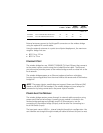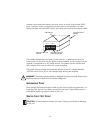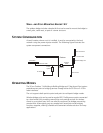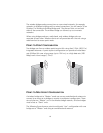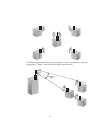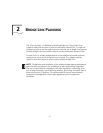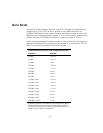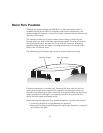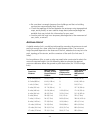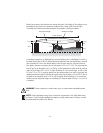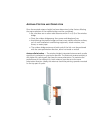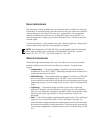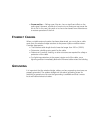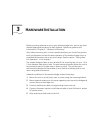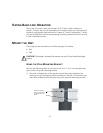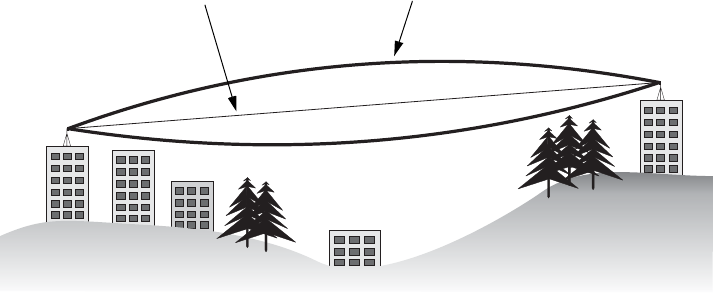
2-3
RADIO PATH PLANNING
Although the wireless bridge uses IEEE 802.11a radio technology, which is
capable of reducing the effect of multipath signals due to obstructions, the
wireless bridge link requires a “radio line-of-sight” between the two antennas for
optimum performance.
The concept of radio line-of-sight involves the area along a radio link path
through which the bulk of the radio signal power travels. This area is known as
the first Fresnel Zone of the radio link. For a radio link not to be affected by
obstacles along its path, no object, including the ground, must intrude within
60% of the first Fresnel Zone.
The following figure illustrates the concept of a good radio line-of-sight.
If there are obstacles in the radio path, there may still be a radio link but the
quality and strength of the signal will be affected. Calculating the maximum
clearance from objects on a path is important as it directly affects the decision on
antenna placement and height. It is especially critical for long-distance links,
where the radio signal could easily be lost.
When planning the radio path for a wireless bridge link, consider these factors:
• Avoid any partial line-of-sight between the antennas.
• Be cautious of trees or other foliage that may be near the path, or may grow
and obstruct the path.
Visual Line of Sight
Radio Line of Sight



